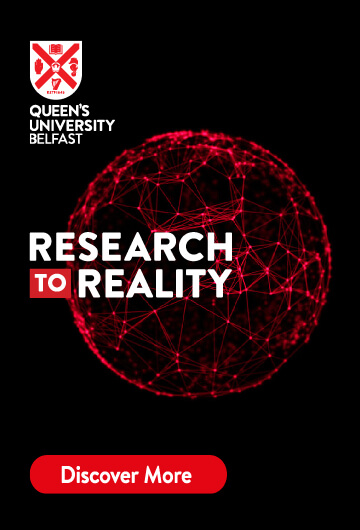
In this episode of the THE Connect podcast, experts in the field of oncology discuss how data can be leveraged to drive innovation and progress in cancer research
Advances in molecular research and data analytics have equipped clinicians with the data to make decisions that not only elevate the patient experience but also drive innovative treatment methods. Researchers at Queen’s University Belfast are exploring the ways that data-driven approaches can shape research policy and cancer treatment and prevention in the UK.
In an episode of the THE Connect podcast, two academics at the forefront of oncology research at Queen’s University Belfast spoke to host Ashton Wenborn about just how important healthcare data is and how the sector can build trust and transparency to improve patient outcomes.
“Data has been transformational. There has been an explosion of data over the last decade,” says Mark Lawler, associate pro vice-chancellor and professor of digital health at Queen’s University Belfast. Lawler stresses the importance of harnessing data intelligence to inform clinical decision-making, rather than relying on opinion. “Opinion is the lowest form of evidence. Making decisions based on opinion is not the way to go,” he says.
Patients’ diagnostic data can be used in two ways, says Philip Dunne, a reader in molecular pathology at the Patrick G. Johnston Centre for Cancer Research at Queen’s University Belfast. It can be used in the short term to influence treatment for individual patients and in the long term to conduct larger studies that could shape health policy.
“As cancer researchers, we are residing in a data revolution driven by molecular information,” says Dunne. However, the challenge researchers now face is converting vast amounts of molecular data into manageable information and features that can be applied within the clinical context. “[We need] new courses and training to put these together to produce that next generation of researchers to understand and turn this information into tools that can help patients,” he adds.
Lawler endorses an interdisciplinary approach to creating future researchers who are equipped with the skills to tackle grand challenges such as cancer. “One of the things that we have realised is the need to bring different disciplines together,” he says. “The more we have learned about cancer, the more we realise we need to learn more, and that’s why we need to bring together different viewpoints, different ways of looking at things and different expertise.”
The university has introduced an initiative called Momentum One Zero to bring together what Lawler describes as “secure, connected intelligence”. The researchers at the university take a challenge-based approach to innovation, where various disciplines can come together and offer different ideas and perspectives to solve problems. “It comes back to the value of conversations, collaborations in person and having non-analysis days where we just talk about what we are doing, talk about the results that we have and examine the question constantly,” says Dunne.
The team’s approach to issues of data security in clinical research projects focuses on privacy, fair value and trust. “We get patients to look at the protocols that we are developing to input into those to make sure they are patient-relevant but also privacy sensitive,” says Lawler. “It’s a real co-creation.
“The important thing is that we do everything transparently and honestly,” says Lawler. He points out that health data shouldn’t have a bad reputation because it can be gathered effectively, working in close collaboration with patients.
Lawler and Dunne are cautiously optimistic about the applications of modern technologies such as artificial intelligence in healthcare and how data and technology can empower researchers to conduct extensive studies on diseases and treatments in the future. “We are trying to future-proof what we are doing,” says Lawler. “The only way to deliver that is through data intelligence that actually points us in the right direction.”














